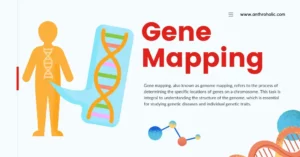AI Answer Evaluation Platform Live Now. Try Free Answer Evaluation Now
Group Marriage
Group marriage is a form of marriage where more than two individuals form a consensual and committed partnership with one another. This relationship structure can take many different forms, including polygamy, polyandry, and polyamory. The concept of group marriage is not a new one and has been present in various cultures throughout history. For instance, polygamy is still widely practised in many parts of the world, particularly in the Middle East and Africa. Polyandry has also been documented in some cultures, including Tibet and parts of India. In recent years, there has been a growing interest in alternative forms of relationships, including group marriage, as people seek new ways to form meaningful connections with others.

Types of Group Marriage
- Polygamy is a form of group marriage where one person has multiple spouses. It is still practised in some cultures and can take various forms, such as polygyny and polyandry.
- Polyandry is a form of group marriage where one woman has multiple husbands. It is practised in some cultures, particularly in Tibet and parts of India, and is often associated with economic and social factors.
- Polyamory is a form of group marriage where individuals have multiple romantic and/or sexual partners with the consent and knowledge of everyone involved. It is based on open communication, honesty, and mutual respect.
Advantages of Group Marriage
Group marriage offers several advantages that can benefit its members. One of the key benefits is the sharing of responsibilities and workload, as each member can contribute their skills and resources towards common goals. This can lead to increased efficiency and productivity, and can also alleviate stress and burnout. Additionally, group marriage can provide emotional support and companionship, as members can offer each other comfort, encouragement, and a sense of belonging. Finally, group marriage can create opportunities for personal growth and development, as members can learn from one another, share different perspectives, and explore new ways of living and relating to others.
Challenges of Group Marriage
While group marriage offers several benefits, it also presents several challenges that can be difficult to navigate. One of the most common challenges is jealousy and competition among partners, as it can be difficult to balance the emotional needs and desires of multiple individuals. This can lead to feelings of resentment, insecurity, and conflict. Another challenge is communication and decision-making difficulties, as group marriages require extensive communication and consensus-building in order to function smoothly. This can be complicated by differences in personalities, communication styles, and decision-making processes.
Moreover, group marriage faces social stigma and legal issues in many societies, as it is often viewed as unconventional and outside of societal norms. This can lead to discrimination, prejudice, and even legal persecution in some cases. Members of group marriages may also face challenges in terms of finding acceptance and support from their families, communities, and even employers.
Overall, while group marriage offers unique benefits, it also requires careful consideration and management of these challenges in order to function successfully.
Successful Group Marriages
There are many examples of successful group marriages, including the Koinonia community in Georgia, USA, and the Zegg community in Germany. These communities have successfully implemented group marriage structures that prioritise open communication, respect, and a commitment to shared values and goals.
Several factors contribute to the success of these group marriages. Firstly, members of successful group marriages typically share a strong sense of community and purpose, which helps to create a supportive and cohesive environment. Additionally, successful group marriages prioritise open and honest communication, which can help to prevent conflicts and misunderstandings. Finally, successful group marriages often place a high value on personal growth and development, and encourage their members to explore new ideas, learn from each other, and pursue their passions.
Conclusion
In conclusion, group marriage is a complex and multifaceted relationship structure that offers both advantages and challenges. While it has a long history in various cultures, it remains a controversial topic in many societies today. However, there are examples of successful group marriages that demonstrate the potential for this alternative relationship structure to provide emotional support, opportunities for personal growth, and the sharing of responsibilities and workload. Moving forward, it is important for individuals, communities, and society at large to approach group marriage with an open mind and a willingness to explore new ways of living and relating to others, while also recognizing and addressing the challenges that it presents.
See Also
References
- Barker, M. (2018). Group marriage: an analysis of polyamory as a form of intentional community. Sexual and Relationship Therapy, 33(3), 301-313.
- Goldberg, A. E., & Allen, K. R. (2013). Beyond the binary: transitions of gender and sexuality within a family-based, polyamorous intentional community. Culture, Health & Sexuality, 15(2), 153-166.




